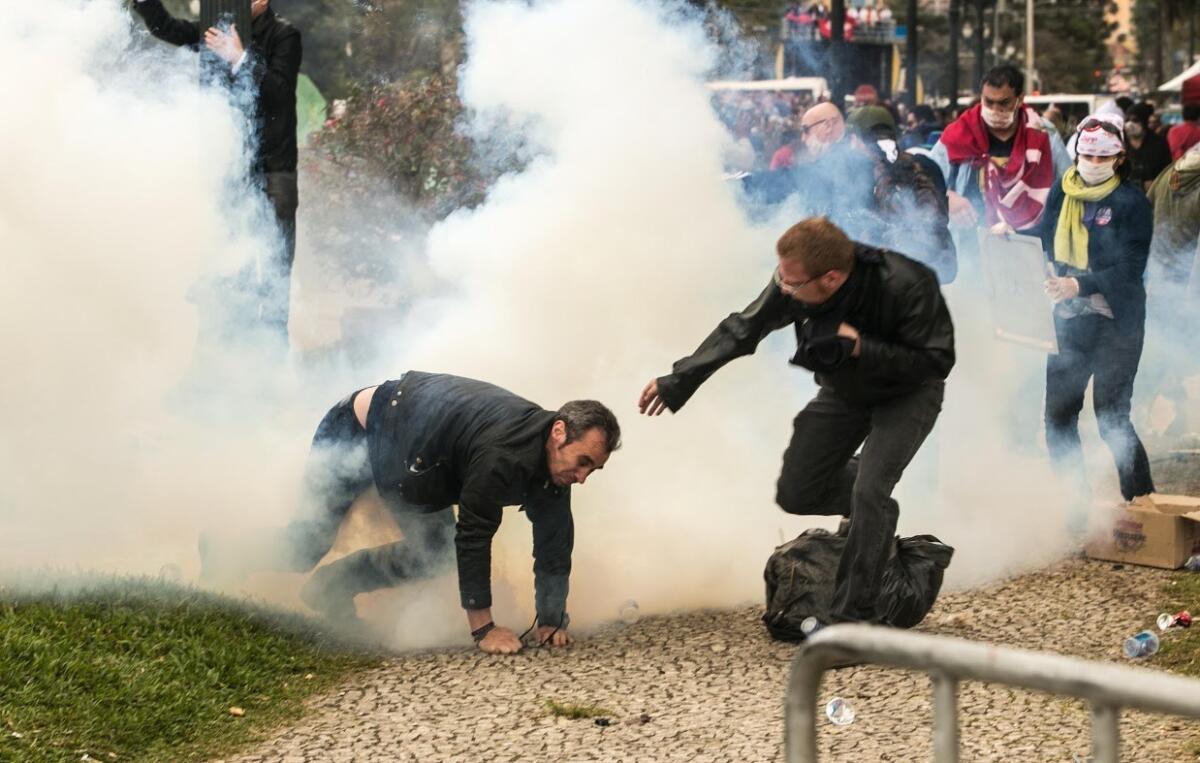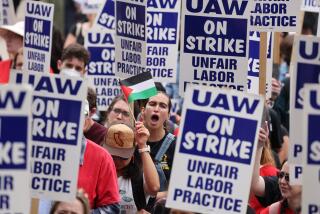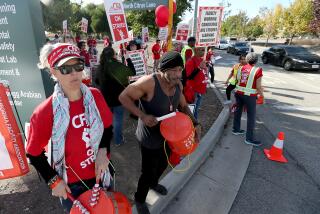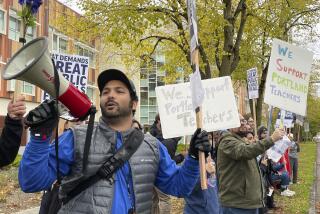Teachers in Brazil vote to extend strike into a third month

Teachers and police clash in downtown Curitiba, Brazil, on April 29, 2015 during protests by teachers seeking better wages and working conditions.
- Share via
Reporting from Sao Paulo, Brazil — A teachers union in Sao Paulo voted Friday to continue a strike into its third month, reinforcing demands on Brazil’s state governments that a recession cost-cutting drive not fall on educators.
Striking teachers filled the city’s main Paulista Avenue after the vote. Members of the Official Teaching Professors Union of Sao Paulo, Brazil’s largest state, insisted that state government officials negotiate with them as they seek higher salaries and relief from overcrowding.
Educators recently have canceled classes or clashed with police in several states. In Sao Paulo, the strike started in March, the union said.
“We were promised that we would be paid as much as other public employees, and it just hasn’t happened,” Val Teresa Maria Alves, an elementary school teacher, said as union representatives boomed their commitment to the strike before the vote Friday. “And overcrowding has become unbearable. They have to invest in us, and the children.”
After nearly a decade of solid economic growth, Brazil is suffering from the effects of a recession, and as the government pushes to balance its budget, living standards are being rolled back for the first time in a generation. Public teachers have staged strikes of some form in more than a third of Brazil’s states. In the southern state of Parana last month, more than 200 were injured as police cracked down on a teachers’ protest with tear gas and rubber bullets.
Those bloody scenes galvanized national opinion, and led the authorities in charge of education and police in the state to step down. In Sao Paulo, governor Geraldo Alckmin has downplayed the strike, saying at one point that it “did not exist,” and later pointed to average teacher absence rates of less than 5%.
The union, which represents the majority of São Paulo’s teachers, rejected these figures Friday, saying that about half of union members had participated in the strike at some point.
“At my school, around 20% have stopped giving classes, like I have,” said Jacson Santana, a high school math teacher in the municipality of Aruja. “The bottom line is that our salaries have not even come close to keeping up with the rising cost of living.”
Bevins is a special correspondent.
More to Read
Sign up for Essential California
The most important California stories and recommendations in your inbox every morning.
You may occasionally receive promotional content from the Los Angeles Times.










